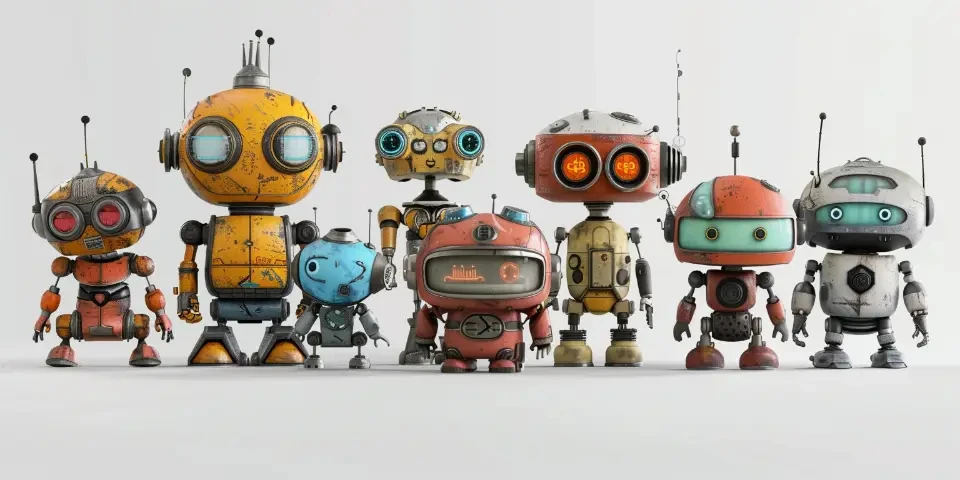Bridging the Gap How AI Chat Apps Enhance Communication
In today's digital era, communication has become more important than ever. However, traditional methods of communication can be limited by barriers such as language, time zones, and cultural differences. This is where AI chat apps come into play, revolutionizing the way we communicate and bridging the gap between people from different backgrounds and locations. In this article, we will explore the various ways AI chat apps enhance communication.
1. Language Translation
One of the most significant advantages of AI chat apps is their ability to overcome language barriers. These apps utilize natural language processing and machine learning algorithms to translate conversations in real-time. This feature allows people speaking different languages to communicate seamlessly, fostering global connections and enabling cross-cultural collaboration.

Moreover, AI chat apps often have multilingual support, enabling users to communicate in multiple languages. For instance, apps like Google Translate and iTranslate provide accurate translations for dozens of languages, making it easier for users to bridge the language gap.
2. Time Zone Flexibility
AI chat apps are particularly beneficial for individuals and businesses operating in different time zones. With these apps, people can communicate asynchronously, overcoming the limitations of traditional synchronous communication methods such as phone calls or video conferences. This flexibility allows for efficient collaboration and eliminates the need for scheduling conflicts.
For example, Slack, a popular AI-powered chat app, empowers teams to communicate and collaborate in real-time, regardless of their location or time zone. Its intuitive interface and features like file sharing and project management make it an indispensable tool for remote teams.
3. Personalized Conversations
AI chat apps excel at understanding and adapting to individual user preferences, enabling personalized conversations. By leveraging user data and machine learning, these apps can offer tailored recommendations, suggestions, and responses.
Take Amazon's Alexa as an example. This AI-powered virtual assistant can learn about users' preferences through their interactions, allowing it to provide personalized recommendations for products, music, and more. The ability to have natural, personalized conversations creates a more engaging and interactive communication experience.
4. Improved Customer Support
AI chat apps have significantly transformed customer support services. With the help of AI-powered chatbots, businesses can offer round-the-clock assistance to their customers. Chatbots can quickly respond to inquiries, provide relevant information, and even resolve common issues.
Platforms like Zendesk and Intercom utilize AI chatbots to automate customer support processes. These chatbots can handle a wide range of queries, reducing the response time and enhancing the overall customer experience. While human support agents are still vital, AI chat apps complement their work and ensure efficient support is available at all times.
5. Natural Language Understanding
AI chat apps employ advanced natural language processing techniques to understand and interpret human conversations. This ability allows for more effective communication, as the chatbots can comprehend context, nuances, and even emotions conveyed through text or speech.
For instance, an app like Grammarly uses AI to analyze written text, offering suggestions for grammar, spelling, and style improvements. Its ability to understand the intricacies of language enables users to communicate more effectively, avoiding miscommunications and misunderstandings.
6. Increased Accessibility
AI chat apps play a crucial role in enhancing communication accessibility for individuals with disabilities. By providing features like voice recognition, speech synthesis, and text-to-speech capabilities, these apps make it easier for people with hearing or speech impairments to communicate effectively.
Apps like Ava and Dragon Dictation use AI algorithms to transcribe spoken words into text, making conversations accessible to individuals who are deaf or hard of hearing. Such apps are instrumental in bridging the communication gap and promoting inclusivity.
7. Virtual Language Learning
Learning a new language can be challenging, but AI chat apps have made it more accessible and engaging. These apps can simulate conversations with native speakers, helping learners practice their language skills in a natural and immersive way.
Popular language learning apps like Duolingo employ AI chatbots to facilitate interactive conversations. The chatbots provide instant feedback, corrections, and encouragement, making the learning process both effective and enjoyable.
8. Enhanced Group Collaboration
AI chat apps not only enhance one-on-one communication but also facilitate group collaboration. They provide features such as group messaging, file sharing, and task management, enabling seamless teamwork.
Microsoft Teams is a prime example of an AI chat app designed for collaborative work. It allows users to create channels, share files, schedule meetings, and integrate with other productivity tools. The app's AI capabilities make collaboration smoother and more efficient.
FAQ:
Q: Are AI chat apps secure?
A: Yes, AI chat apps prioritize security and implement measures like end-to-end encryption and secure authentication protocols to protect user data and conversations.
Q: Can AI chat apps replace human communication?
A: While AI chat apps enhance communication, they cannot entirely replace human interaction. These apps are designed to complement and assist human communication, ensuring efficiency and convenience.
Q: Do AI chat apps require an internet connection?
A: Yes, AI chat apps rely on an internet connection to process language, access databases, and provide real-time responses. Without an internet connection, their functionality may be limited.
Explore your companion in WeMate